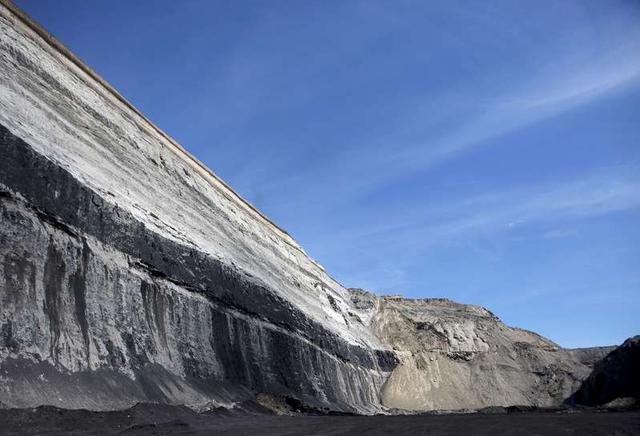Publisher’s Note:
Arcadia Minerals, Inc. (AMI), owner of two advanced stage critical minerals deposits in Wyoming, has engaged EnerCom Inc. to assist in identifying potential joint-venture partners or buyers for its properties.

Critical and rare earth minerals are on a steep demand trajectory on par with EV minerals (lithium, graphite, cobalt, copper, nickel) and used in high growth markets including, military weapons, electric vehicles, high-tech digital, wind, solar, electronics and smartphones.
Recent initiatives by the U.S. Congress, White House by Executive Order, and the Department of Defense declaring a State of Emergency for Critical Minerals are intended to rapidly wean the United States and its allies from their dependence on critical and rare earth mineral supply from China.
AMI owns two proven resource blocks on 2,800 acres (11.3 km2) located in the politically stable state of Wyoming containing zirconium, titanium and rare earths. The de-risked opportunity includes “double staked” claims with no legacy title or mining issues, located in a mining industry friendly state, and independent engineering reports confirming the contained resources and grade, including metallurgical reports and pre-feasibility report.
The project is a simple, open pit mine with over 33 million delineated tons that will utilize well proven dry, wet, and magnetic separation, with low cost production and a projected 85-92% yield. A recent valuation of the insitu resource is estimated at $860 million.
Strategic consulting partners on the project include BRS Inc. with over thirty years’ experience in mining and engineering for permitting, design and construction management and Hazen Research, Inc.
To speak with the management of Arcadia Minerals, please contact Dan Genovese, Director at EnerCom Inc. (303) 807-8359 or dgenovese@enercominc.com
By Tom Jurkowsky
Nov 22, 2020 at 2:15 PM
In a recent presentation, Secretary of the Navy Kenneth Braithwaite said he thought “China is probably the greatest threat to our country that Americans do not understand.”
He added he believes what we are seeing emerge is a threat beyond any comparison ever in the history of our country.
Braithwaite was addressing the military threat that China poses. We have addressed the exponential growth of the Chinese military on these pages, along with other issues such as our dependency on China for pharmaceutical products; our reliance on China for countless consumer products, due in part to our diminished manufacturing base; and even Wall Street investing in Chinese companies. These dependencies and actions are part of the threat that Braithwaite refers to.
How has this all happened? In his book “The China Nightmare,” Dan Blumenthal of the American Enterprise Institute, captures it very succinctly — “China has taken advantage of American complacency.”
Another issue that illustrates our complacency is rare earth minerals.
Rare earth minerals are a set of 17 metallic elements and are an essential part of many high-tech devices. The U.S. Geological Survey says they are the necessary components of more than 200 products across a wide range of applications, especially high-tech consumer products, such as cell phones, computer hard drives, electric and hybrid vehicles and flat-screen monitors and televisions.
In 1993, 38 percent of world production of rare earth minerals was in China and 33 percent was in the U.S. Several other countries made up the rest. By 2008 China accounted for more than 90 percent of world production and by 2011, it accounted for 97 percent.
According to the journal China Power, in 2019 the value of worldwide rare earth imports was $1.15 billion. The total value of goods produced by using rare earth minerals, however, is many times larger. Each Apple iPhone, for example, relies on multiple rare earth elements.
Neodymium is used to make powerful magnets that allow iPhone speakers to work. Europium is used to produce colors on screens, and cerium is used to polish the phones during manufacturing.
Last year Apple sold more than $142 billion worth of its iPhones.
More significantly, defense applications include shipbuilding, aircraft manufacture, and guidance systems for missiles, lasers, radar and sonar systems. A Congressional Research Service report noted that each Virginia-class submarine requires approximately 9,200 pounds of rare earth minerals; each Aegis destroyer approximately 5,200 pounds; and each new F-35 fighter 920 pounds.
To that end, President Donald Trump recently signed an executive order with the objective of our putting an end to our reliance on China for rare earth minerals. However, we’ve heard these clarion calls before. Ten years ago, a series of events and press reports highlighted what some referred to as the “rare earth crisis.”
Policymakers and legislators were concerned when China cut its rare earth exports and restricted the world’s access to rare earth materials — all while the U.S. depended almost entirely on China for these elements. Additionally, after China’s actions, some policymakers expressed concern that we had lost our domestic capacity to produce strategic and critical materials. They saw the implications for U.S. national security and our ability to compete in the world.
“We’re trying to complete in the 21st-century tech wars, and we’ve given all the leverage to one of our key competitors,” said Dan. McGroarty, a member of USA Rare Earth’s Advisory Board.
When President-elect Joe Biden assumes office in January, he will have a hefty agenda of domestic and international issues that he will need to address. One of them is China and our dependence on it — not to mention its growing military and economic power.
China’s goal of global strategic dominance continues unabated. Hopefully, our new president sees that the time to end our complacency with China has come once and for all. Congress needs to help him. It’s time for a commitment to bipartisanship if we desire to maintain our global leadership posture.
Rear Adm. Tom Jurkowsky, U.S. Navy (Ret.), serves on the board of the Military Officers Association of America. He served on active duty for 31 years and is the author of “The Secret Sauce for Organizational Success: Communications and Leadership on the Same Page.”
About AMI
Arcadia Minerals, Inc. is a private critical mineral company headquartered in Wyoming. It owns two advanced stage critical and rare earth mineral resource blocks that are amenable to open pit production.
About EnerCom
EnerCom (Energy Communications) has a rich history of working with clients to differentiate and deliver targeted messages to investors. EnerCom, Inc. is an internationally recognized management consulting firm advising companies on Environmental, Social & Governance (ESG), investor relations, corporate strategy/board advisory, marketing, analysis and valuation, media, branding, and visual communications design. For more information about EnerCom and its services, please visit http://www.enercominc.com/.





